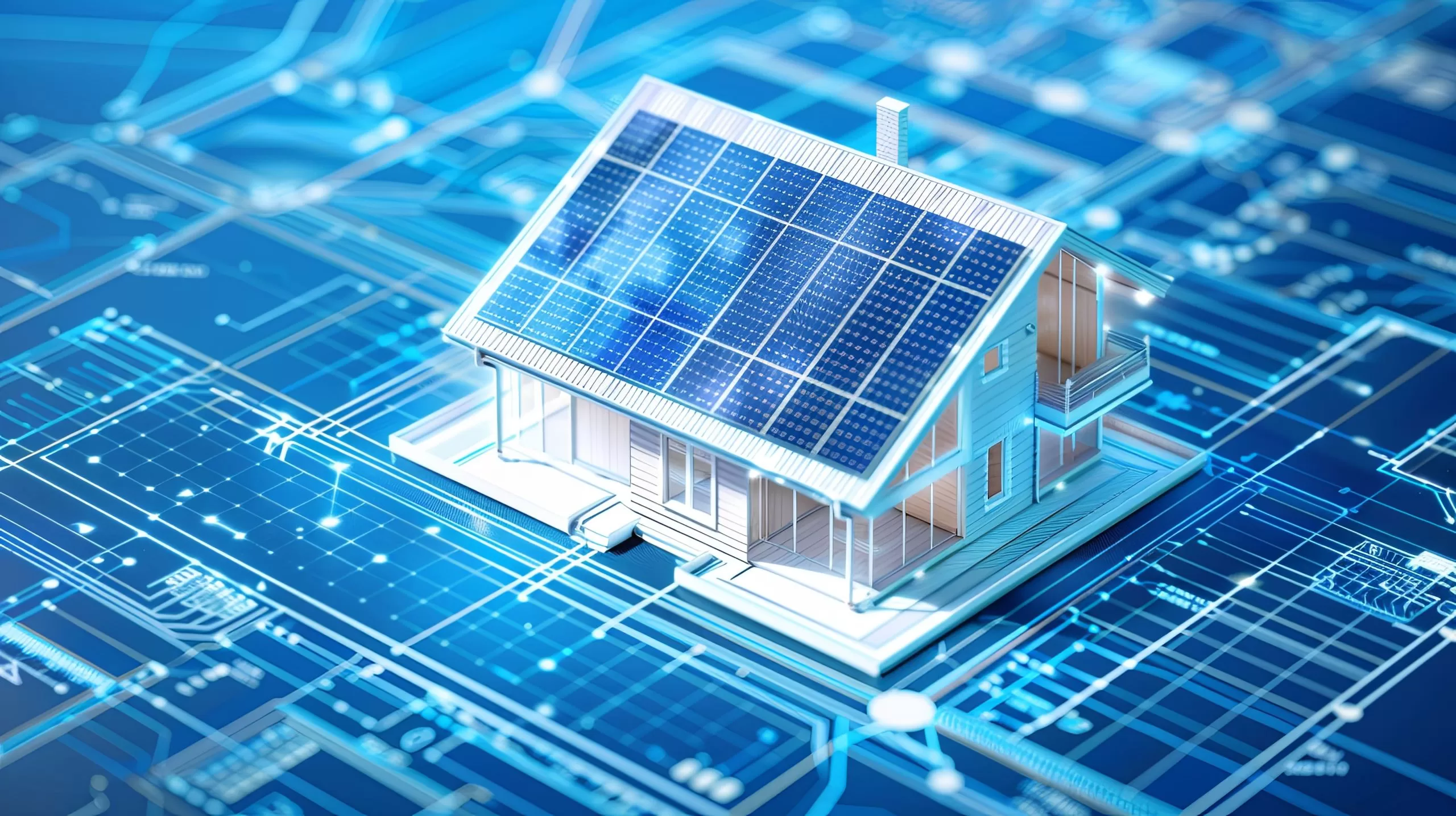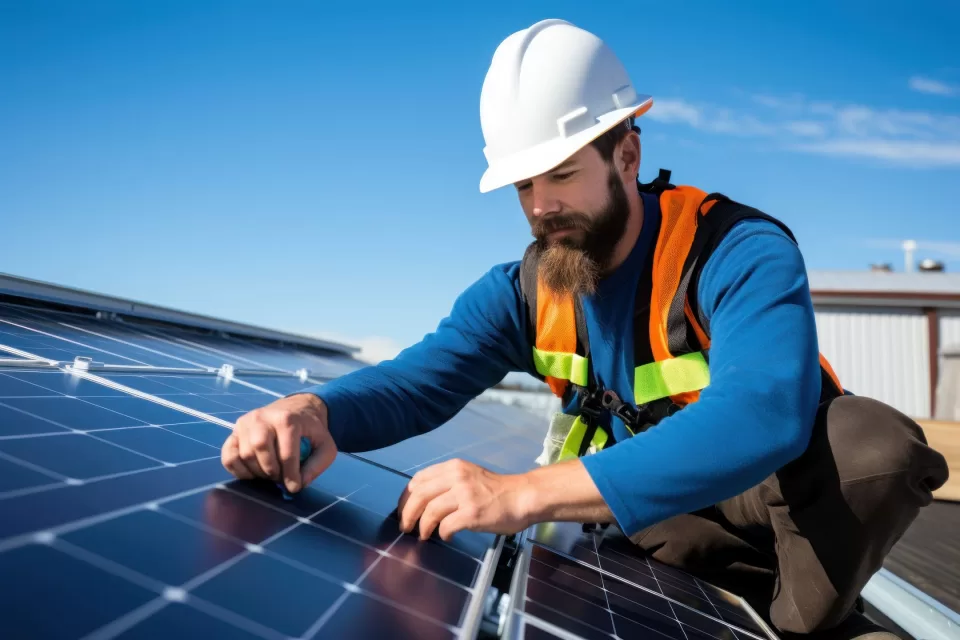Are you tired of sky-high energy bills and wondering if solar power could be the answer to your energy woes? Well, more and more homeowners are looking to the sun to power their homes and slash their utility costs. But here’s the big question: How much is this going to set them back?
In this article, you’ll learn the costs of home solar systems. Read on for factors that’ll influence the amount you pay for that new solar system installation!
System Installation Complexity
Have you ever wondered why some houses seem to sprout solar panels overnight while others take weeks? The secret lies in your roof! The type of roof you have can make a big difference in how easy it is to install solar panels. Standard shingles? That’s usually a breeze. But if you have fancy slate tiles, it might take a bit more time and effort.
The direction your roof faces is also crucial. South-facing roofs are like sunbathing spots for solar panels, soaking up rays all day long. If your roof faces another way, the installation crew might need to get more creative with placement.
Look around your house. Are there tall trees or a chimney nearby? These can cast shadows on your future panels. The installation team will need to plan carefully to make sure your panels catch as much sunlight as possible.
This means you need to hire top-notch residential solar installation services that can handle various types of roofs and overcome site-specific challenges. These experts will assess your unique situation, from roof material to sun exposure, and design a custom solution. They’ll navigate around obstacles like chimneys or shade from trees, ensuring optimal panel placement for maximum energy production.
Solar Panel Size and Capacity
How much power do you need? That’s the critical question when sizing your solar system. Think about your energy habits. Do you run the Air Conditioning (AC) all summer? Or do you work from home with multiple devices? Your lifestyle shapes your power needs.
Bigger isn’t always better, though. You’ll want to balance the size with the solar panel installation costs. A larger system generates more electricity but comes with a higher price tag.
For instance, a family of four in a spacious home might need a 6 kilowatt (kW) system, while a single person in an apartment could manage with much less. Your setup should be as unique as your home and lifestyle.
The more kW you need, the higher the solar panel costs. But a single person in an apartment could get by with much less. Your ideal solar solution depends on your specific situation. It’s worth consulting a professional to design a solar power system that fits your needs.
Type and Quality of Solar Panels
The type of solar panels you choose will also affect your average solar system cost. There are mainly three types of solar panels available:
Monocrystalline Panels
Are you looking for top-tier solar performance? Monocrystalline panels are your best bet. These renewable energy systems pack a punch in a compact package. They’ll maximize your roof’s potential, turning more sunlight into electricity than other options. But they come with a heftier price tag. If you have a flexible budget, these could be your ideal energy solution.
Polycrystalline Panels
Polycrystalline panels offer the perfect balance between performance and price. While not as powerful as monocrystalline panels, they still effectively convert sunlight into electricity. You’ll save money upfront, making them perfect if you’re on a budget or have more roof space to work with.
Thin-Film Panels
Thin-film panels are the cheapest solution and can be your best choice if you need a low-cost solar solution. They’re the most affordable option, perfect for large spaces. While less powerful than other types, they shine in big projects. These panels work best on vast surfaces like warehouse roofs or open fields. They’re the economic option of the solar world: basic, cheap, and practical!
Ultimately, your choice of solar panel type depends on your specific needs, budget, and available space. Consider consulting with a solar expert to determine which option best suits your unique situation and energy goals.
Local Weather and Geographic Location
Where you live plays a significant role in how much you’ll spend to integrate solar panels into your home. Sunny spots naturally squeeze more power from panels than cloudy or rainy regions. This affects both your initial costs and long-term savings.
Think about your local weather. Do you bask in year-round sunshine, or does winter bring weeks of gray skies? More sun means you need fewer panels to meet your energy needs.
And what about less sun? Well, you’ll likely need a larger system to compensate. But even less sunny areas can benefit from solar power. So, don’t let that stop you from embracing energy efficiency. The professionals will know how to make it work.
Labor Costs
The average cost of solar system installation also depends on who installs them. If you live in a solar-friendly city, you might find more competitive prices due to the abundance of installers. But if you’re in an area where solar is less common, expect to pay a bit more.
The expert’s experience will also add to the solar panel prices. A seasoned professional might charge more, but their expertise could save you headaches in the long run. They’re less likely to make mistakes that could lead to costly repairs or reduced efficiency.
Think of it like hiring a mechanic. The cheapest option isn’t always the best value. A skilled installer ensures your solar panel system runs smoothly for years to come.
Feel free to shop around and ask questions. Get quotes from several installers and check their credentials. The right installer can make all the difference in your solar journey.
Regulatory Solar Equipment and Incentives
Government incentives can make going solar more affordable. These programs can cut upfront costs and help you save money faster.
Many countries offer national tax credits for solar installations. For instance, in the U.S., you can deduct a portion of your solar costs from your federal taxes. It’s like getting a discount directly from the government.
Other than the government incentives, also check what’s available locally. Your state, city, or utility company might offer additional perks like:
- Cash rebates
- Property tax exemptions
- Credit for the energy your system produces
Some areas may even have net metering programs, which allow you to sell excess power back to the grid. This could reduce your electricity bill. However, note that these solar incentives can change. It’s wise to act while they’re available.
Home Solar Panel Maintenance Costs
Your home solar panels are now up and running—amazing! But don’t forget about maintenance. While solar systems are low-fuss, you need to maintain them to ensure they’re always in good condition.
Cleaning solar panels is crucial. Rain often does the job, but in dry areas, you need to wash off dust and debris occasionally. Consider annual inspections to ensure everything works perfectly. A pro can spot potential issues early, saving you from costly repairs later.
One part to watch out for is the inverter. This vital component typically lasts 10-15 years. Plan to replace it about halfway through your panel’s lifespan.
By budgeting for these solar panel maintenance costs upfront, you’ll avoid surprises and keep your solar energy system running efficiently for years. A well-maintained solar setup means more energy savings in the long run.
Conclusion
Investing in a home solar system is more than just an environmentally friendly decision; it’s also financially strategic. As discussed, several factors influence the total cost of your solar setup. However, while the initial outlay might seem substantial, the long-term savings on energy costs and potential increase in property value make solar power a compelling option for many homeowners. Understanding these factors and carefully planning your installation will ensure that your solar investment is as beneficial to your finances as it is to the planet.

